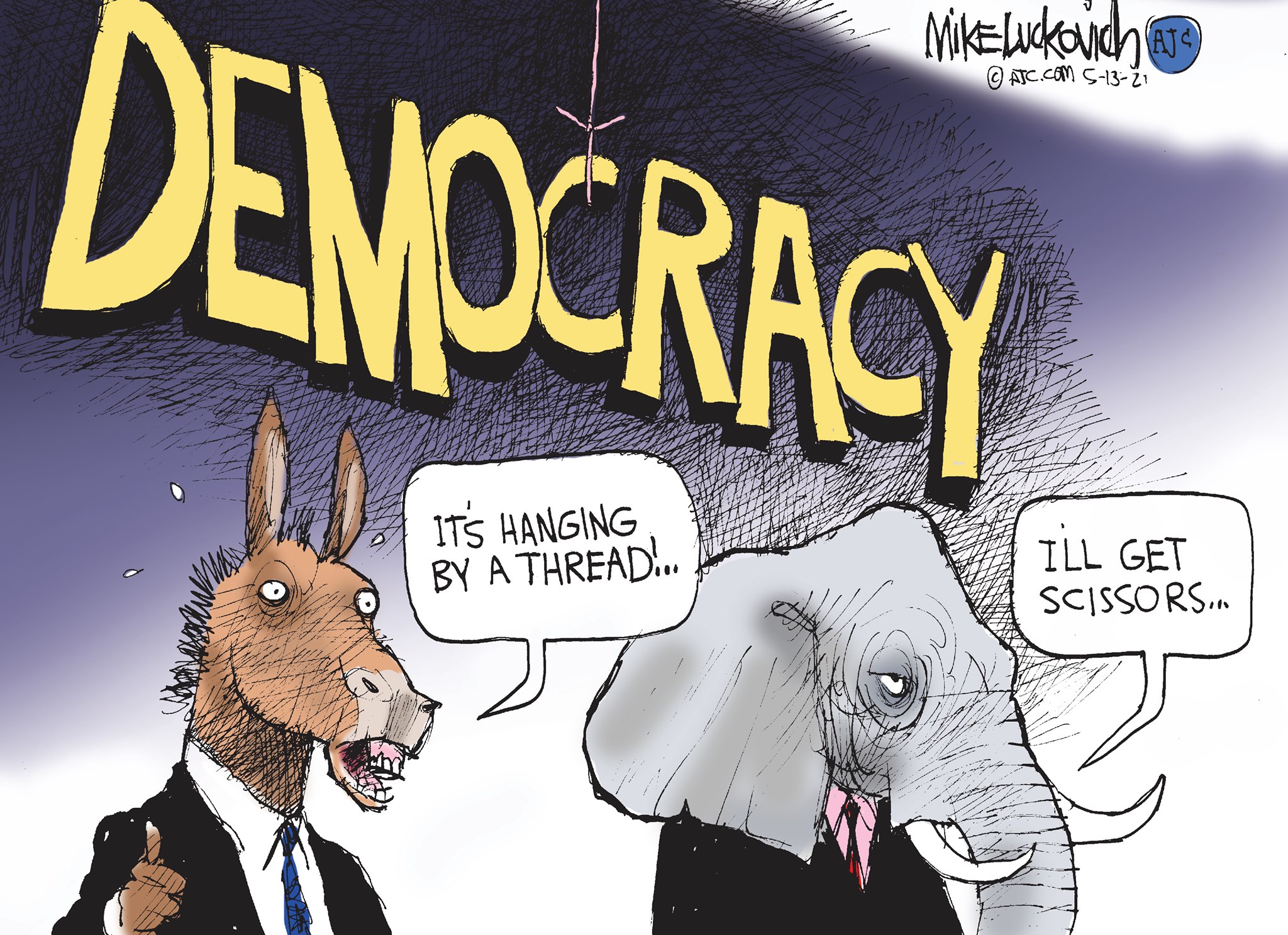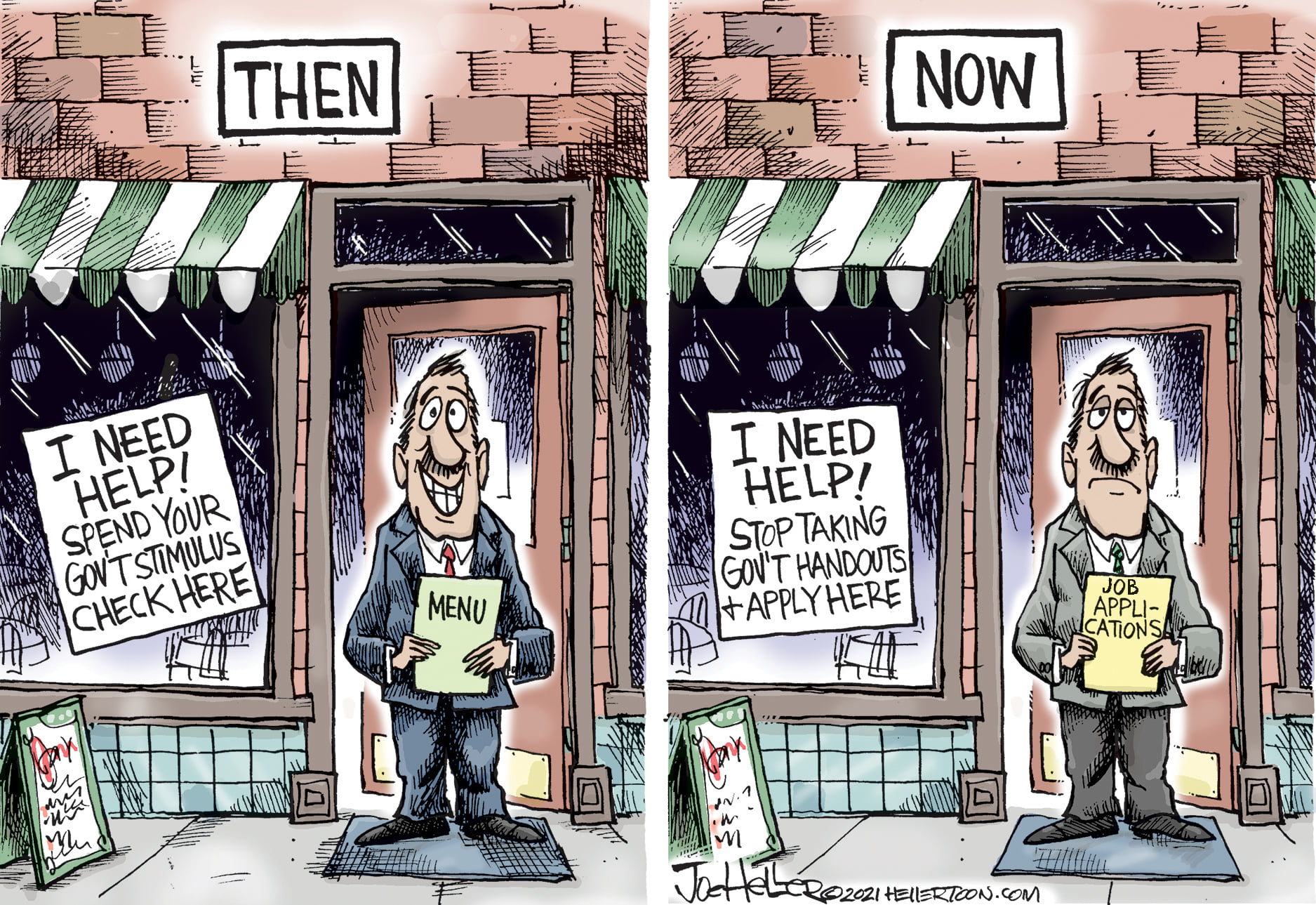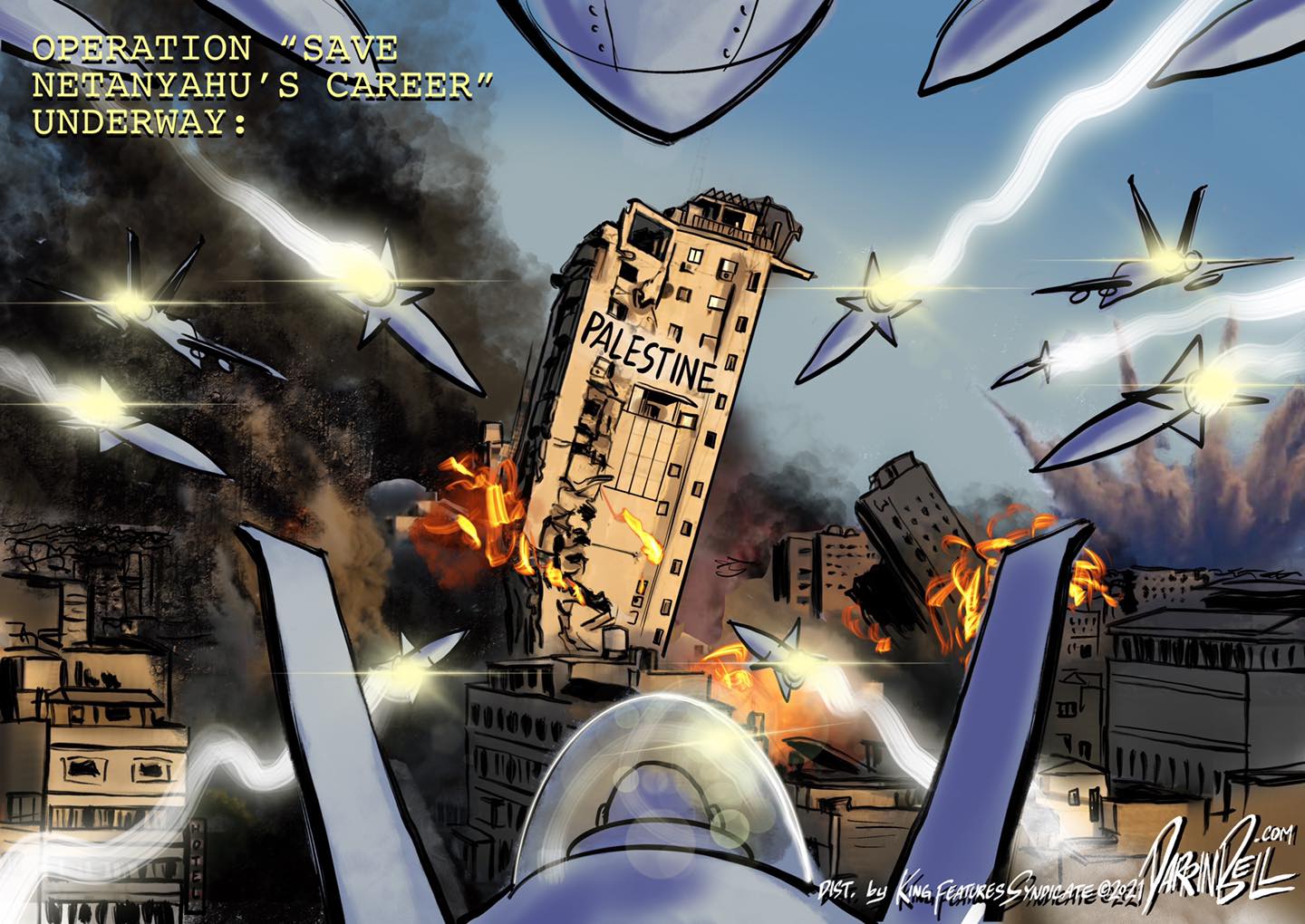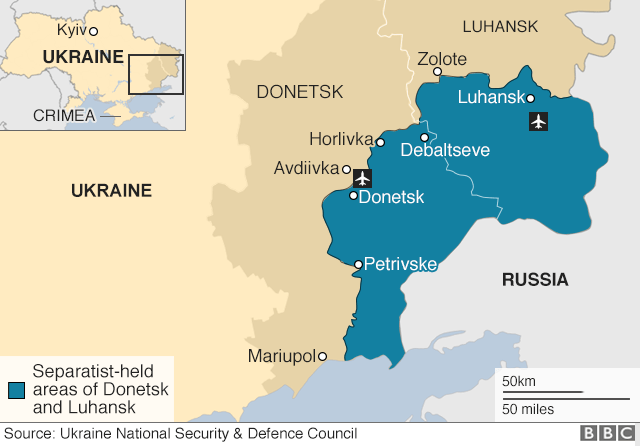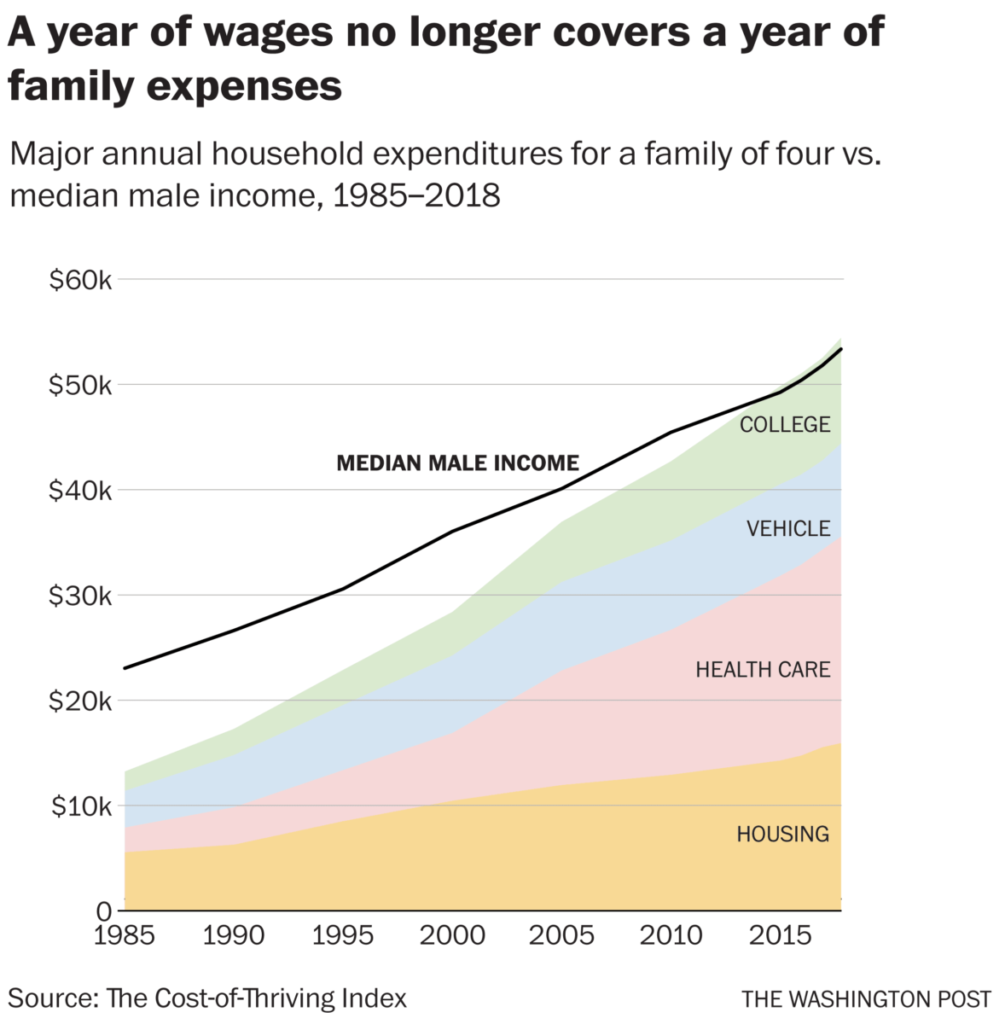The Daily Escape:

Sunrise, Atlantic Beach, FL August 2021 photo by Razvan Balotescu
The finger pointing has already begun, but it was always going to end badly. Should we be surprised? Sure, Biden has made mistakes, the same kind as those of his predecessors. He believed what he was told by the CIA and the military, neither of which should be trusted about anything they say regarding Afghanistan.
The foreign policy and military establishment are now doing everything they can to blame Biden, but the bottom line remains that Afghanistan is a massive failure on their part. They continued telling him the same bullshit they told Bush II, Obama, and Trump.
The images coming from Afghanistan are disturbing, and there’s plenty of blame to go around. We spent $2 trillion to prop up the government that failed, and to train and equip the Afghan military over the past 20 years. And they fell in a week. (Full disclosure: Wrongo owns shares in a defense contractor that trained the Afghan military.)
From the WaPo: (brackets by Wrongo)
“The spectacular collapse of Afghanistan’s military that allowed Taliban fighters to walk into {Kabul]… Sunday despite 20 years of training and billions of dollars in American aid began with a series of deals brokered in rural villages between the militant group and some of the Afghan government’s lowest-ranking officials.
The deals…were…described by Afghan officials as cease-fires, but Taliban leaders were in fact offering money in exchange for government forces to hand over their weapons, according to an Afghan officer and a US official.
Over the next year and a half, the meetings advanced to the district level and then rapidly on to provincial capitals, culminating in a breathtaking series of negotiated surrenders by government forces, according to interviews with more than a dozen Afghan officers, police, special operations troops and other soldiers.”
It’s almost like the Taliban were familiar with Afghan culture and society! It’s clear that the US Military and Government sure as hell were not. Former Vice-President Cheney of Halliburton will probably need yet another heart transplant when he hears that Kabul fell without a shot fired.
It’s difficult to know whether the CIA, military, and neo-con foreign policy types involved in criticizing Biden are liars or are deluded. Do they think that America just needed a little more time on the ground in Afghanistan? Or do they know the only real alternative here was an indefinite, colonial occupation, something they know shouldn’t be politically or morally acceptable?
Inside the beltway, there are people who have devoted most of their adult lives to war in the greater Middle East. Obviously, they are going to oppose pulling out. It’s like setting their entire life’s work on fire. No one willingly admits their life’s work is a failure.
The idea that we need to stay in Afghanistan indefinitely has nothing to do with a coherent policy. It’s the neo-con ideology of American Exceptionalism: America is awesome, America kicks ass, America can’t fail, it can only be failed by Biden.
In this case, our “Exceptionalism” as practiced by neo-cons like John Bolton, Mike Pompeo and Fred Kagan, has two parts: First, our mission is to save the world. Second, the Afghans are the reason we couldn’t save the world. Both are opposite sides of the same imperialistic coin of exceptionalism. Why are the Afghans responsible for the unraveling of our illusions? And, isn’t Afghanistan a part of our illusion?
Charlie Pierce says of the neo-cons:
“None of those people have produced an adequate answer to the question of what the hell we were doing there, and what the hell we would do there for the next 10, 20, or 50 years. Sooner or later, we have to learn the lessons of history, because we’ve been deaf to them for so long. In Vietnam, we should’ve learned that the only people who really want the places in which we choose to make war are the people who live there.”
We’ve made a long series of bad decisions. First, we should have left Afghanistan after we helped the Northern Alliance beat the (then unpopular) Taliban. Instead, Bush II experimented with nation-building, drafting a constitution that created a strong central government in a country that is ruled locally. We then installed a puppet regime.
Now, we’re surprised that most people don’t like being told what to do by outsiders.
We should have seen that the Afghan government we created would collapse if we left. The particulars, especially just how quickly it ended may be a surprise, but the error can be measured in weeks, not months. And that’s not a big estimation error in a 20-year war.
There’s a lot of hindsight bias among the neo-cons and some Republicans who are saying Biden “lost Afghanistan”. It was lost years ago. The same scenario could have played out whether Bush, Obama or Trump were leading the withdrawal.
What does it say about Afghanistan, if the government and the civilian military we supported with $ trillions would only stay in place if we kept our military there as an occupying force?
The faux outrage at Biden losing Afghanistan needs to be prioritized on the list of what really matters in America today (in no order):
Afghanistan
Our mediocre education system
The Covid pandemic
Fraying social cohesion
Climate change: forest fires/drought
Vote suppression
Domestic terrorism
Economic inequality
Media lies/disinformation
White supremacy and racism
Wrongo knows which one is his lowest priority. What priority is Afghanistan for you?
Now, our mission is clear: hold the Kabul airport as long as possible and get ALL US citizens and as many Afghan partners out as we can. Along with getting out the thousands of troops we sent in the last few days to secure the airport.
The scenes of chaos at the Kabul airport raises a question of whether we should have abandoned the Bagram Air Base on July 1. It’s farther from Kabul and more difficult to defend, but we probably wouldn’t be seeing its runways swarming with Afghans if we were departing from there.
We can debate the rest later.
Lost in the discussion is the pointless tragedy of our soldiers who fought in Iraq and Afghanistan, and for what? Listen to Eric B. & Rakim, a hip-hop duo from NYC, perform their 1992 rap, “Casualties Of War”. They were rapping about Desert Storm, but Rakim was also predicting the future:
Sample lyric:
Cause I got a family that waits for my return
To get back home is my main concern
I’ma get back to New York in one piece
but I’m bent in the sand that is hot as the city streets
Sky lights up like fireworks blind me
Bullets, whistlin over my head remind me…
President Bush said attack
Flashback to Nam, I might not make it back
Half of my platoon came home in coffins…buried in the Storm In bits and pieces…ain’t no way I’m going back to war
When I don’t know who or what I’m fighting for




